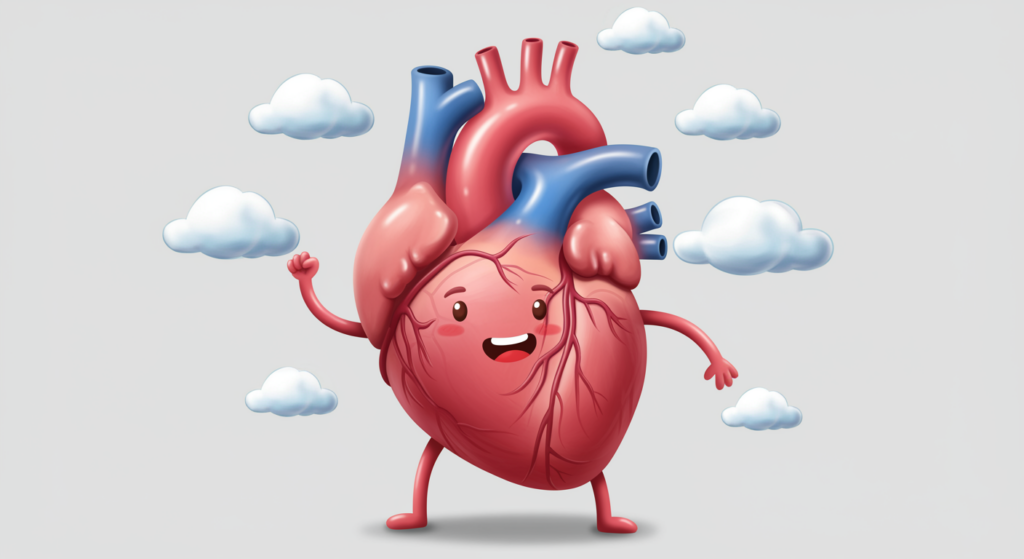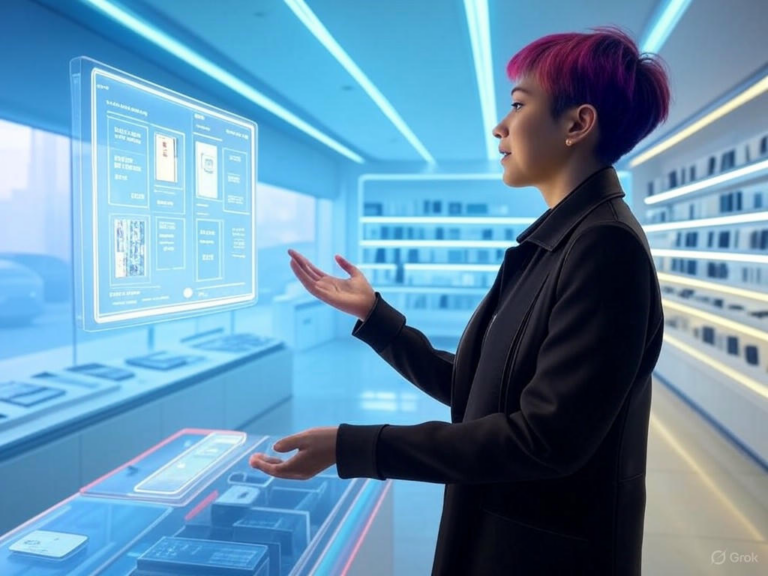
AI Tool Detects Heart Risks Earlier, Study Finds
The Rise of AI Heart Risk Detection in Modern Medicine
AI heart risk detection is transforming how we approach cardiovascular health, spotting potential dangers long before they become obvious. Recent studies show that these innovative tools can forecast heart disease risks years ahead of traditional methods, potentially saving millions from severe events like heart attacks. Imagine a world where a simple scan could reveal hidden threats—it’s not science fiction anymore, but a reality backed by cutting-edge research.
This advancement means earlier interventions, better outcomes, and a proactive stance against one of the world’s leading killers. By analyzing vast amounts of data with precision, AI heart risk detection is outpacing human capabilities, offering a glimmer of hope for at-risk individuals everywhere.
How AI Heart Risk Detection Analyzes and Predicts Dangers
At its core, AI heart risk detection uses deep learning to sift through complex health data, such as ECGs, cardiac CT scans, and even heart sound recordings. These systems uncover patterns that humans might miss, processing information at speeds and scales impossible for manual review. For instance, AI can detect early signs of cardiovascular issues by examining subtle anomalies in routine tests.
- One key strength is in analyzing heart sounds, where AI outperforms traditional stethoscopes in identifying heart valve disease and other complications, as shown in a study from the American Heart Association.
- When it comes to ECG analysis, AI heart risk detection flags high-risk patients for urgent care, streamlining processes that could otherwise delay treatment.
- Additionally, by scrutinizing cardiac CT scans, these tools predict events like heart attacks or failure up to a decade in advance, giving doctors a critical head start.
Have you ever thought about how a machine could listen to your heart and spot trouble before you feel any symptoms? It’s this level of foresight that makes AI heart risk detection a game-changer.
Spotlight on AI: The Viz HCM Algorithm in Action
Researchers at Mount Sinai have pioneered the Viz HCM AI algorithm, a tool designed for early detection of hypertrophic cardiomyopathy, a condition linked to sudden cardiac death. Unlike older methods that offered simple yes-or-no results, Viz HCM provides a detailed probability score, allowing for more nuanced AI heart risk detection. This means doctors can act with greater confidence, tailoring interventions to each patient’s unique needs.
Shaping Clinical Decisions Through AI Insights
- High-risk patients get prioritized for evaluations, turning potential crises into manageable situations.
- With AI-generated scores, clinicians craft personalized treatment plans, potentially averting serious complications through timely adjustments.
Consider a hypothetical scenario: A middle-aged athlete undergoes a routine scan, and AI heart risk detection reveals a moderate risk score. This prompts immediate lifestyle changes and monitoring, possibly preventing a tragic outcome.
AI’s Role in Everyday Cardiac Imaging for Early Warnings
AI heart risk detection isn’t just for complex cases—it’s enhancing standard procedures like cardiac CT scans. A landmark UK study revealed that AI can identify future cardiac events in patients with seemingly clear scans, detecting hidden inflammation that signals impending risks. This capability ensures that even subtle indicators don’t slip through the cracks.
Key Outcomes from AI-Driven Predictions
- The technology accurately forecasted heart attack risks over a decade, even without traditional red flags, according to the research.
- In up to 45% of cases, doctors revised treatment strategies based on AI insights, demonstrating real-world impact.
If you’re someone who gets regular check-ups, this means your doctor could use AI heart risk detection to catch issues early, offering peace of mind and proactive care.
Advancements in AI for Gender-Specific Heart Risk Detection
Women often experience heart disease differently, making early diagnosis tricky, but AI is bridging that gap. A recent study highlighted an AI tool that analyzes ECG data to pinpoint elevated risks in women, customizing AI heart risk detection for better accuracy. By addressing these differences, we’re moving toward more equitable healthcare.
This approach not only improves outcomes but also empowers clinicians to intervene sooner, potentially saving lives that might have been overlooked.
AI Heart Risk Detection Versus Traditional Methods: A Head-to-Head
| Feature | Traditional Methods | AI-Powered Tools |
|---|---|---|
| Data Types Analyzed | Limited to basics like ECGs and imaging | Expansive datasets for comprehensive AI heart risk detection |
| Accuracy | Vulnerable to human oversight and lower precision | Enhanced accuracy through advanced algorithms, as per multiple studies |
| Personalization | One-size-fits-all risk assessments | Tailored, probability-based insights for individualized care |
| Time to Intervention | Often delayed by procedural bottlenecks | Swift prioritization for at-risk individuals via AI heart risk detection |
As this comparison shows, AI heart risk detection offers clear advantages, making it a vital tool in today’s medical toolkit.
Top Benefits of Embracing AI Heart Risk Detection
- Prevention: Early AI alerts enable treatments that cut down heart attacks and deaths, based on solid research findings.
- Efficiency: It directs resources to those who need them most, avoiding unnecessary tests for low-risk groups.
- Personalized Care: Patients receive custom advice, improving overall health management and results.
- Inclusive Detection: It targets underserved populations, like women, ensuring no one is left behind in AI heart risk detection efforts.
For anyone concerned about heart health, this technology could be a lifesaver—literally. If you’re at risk, consider discussing AI options with your healthcare provider as a smart first step.
Challenges in Implementing AI Heart Risk Detection
While promising, AI heart risk detection isn’t without hurdles, including safeguarding patient data and avoiding biases in algorithms. Ensuring these tools work across diverse groups is essential to prevent inequalities in care. Integration into existing systems also poses challenges, but ongoing trials are paving the way for smoother adoption.
Experts are optimistic that with continued refinement, AI will become a standard, accessible part of cardiovascular medicine.
Insights from the Field: What Experts Say
This new and exciting AI tool gives clinicians a glimpse into the futures of those most at risk of having a heart attack, heart failure and cardiac death in the next decade. Technological advances like this are increasingly valuable in guiding treatment decisions, helping clinicians intervene at the right time to help patients avoid these devastating conditions.
– Bryan Williams, Chief Scientific and Medical Officer, British Heart Foundation Source
These perspectives underscore the potential of AI heart risk detection to reshape patient care.
What AI Heart Risk Detection Means for You
Ultimately, this technology translates to earlier diagnoses, customized strategies, and more effective management of heart health. It’s about shifting from reactive to preventive care, giving you the tools to stay ahead of potential threats. What are your thoughts on how AI could change your health routine?
Learn More and Take Action
To dive deeper, explore resources from trusted sources and consider talking to your doctor about incorporating AI heart risk detection into your check-ups. Share this article with friends or family who might benefit, and let’s spark a conversation on advancing heart health together.
References
- American Heart Association. “AI May Accurately Detect Heart Valve Disease and Predict Cardiovascular Risk.” Link
- Mayo Clinic. “AI in Cardiology Overview.” Link
- News-Medical. “New AI Tool Detects Elevated Heart Disease Risk in Women Using ECG.” Link
- Diagnostic and Interventional Cardiology. “Study Shows New AI Tool May Spot Heart Risk Sooner.” Link
- University of Oxford. “AI Analysis of Routine Heart Scans Can Predict Risk of Developing Heart Problems Ten Years in Advance.” Link
- Other sources as referenced in the content.
AI heart risk detection, early heart disease diagnosis, cardiovascular risk prediction, AI cardiology tools, AI ECG analysis, hypertrophic cardiomyopathy detection, personalized heart care, AI in cardiac imaging, heart disease prevention, women’s heart health risks







